Welcome to the enigmatic universe of Elden Ring! If you’re reading this, you’re probably wondering, “what is dexterity in Elden Ring?” The concept of dexterity can be a bit elusive to grasp, especially for newcomers to this action RPG.
But fear not, dear player, this comprehensive guide is designed to unveil the intricacies of dexterity in Elden Ring, the role it plays in your gameplay, and how to leverage it to your advantage. Let’s dive right in.
Understanding Dexterity in Elden Ring
The term ‘dexterity’ might bring to mind images of nimbleness, agility, and swift reflexes. This isn’t far from its meaning in Elden Ring, where dexterity is a core stat that influences your gameplay significantly.
Dexterity in Elden Ring primarily governs the effectiveness of specific weapons, especially those that require fast and precise movements. Hence, increasing dexterity can result in improved performance with certain weapons, making your attacks more potent and your battles more successful.
To visualize the concept, think of a nimble-footed rogue wielding a lightweight rapier with precision and quickness. This is an example of dexterity at play. High dexterity means you can perform attacks swiftly and accurately, which is vital in a fast-paced game like Elden Ring.

The Role of Dexterity in Weapon Use
Dexterity is not a one-size-fits-all stat in Elden Ring. Not all weapons benefit from high dexterity. Some weapons scale better with strength. Therefore, understanding the weapon you are using or plan to use is crucial in deciding whether to invest your points in dexterity.
Weapons that scale well with dexterity are often fast and lightweight, such as katanas, rapiers, or curved swords. The Moonveil Katana and the Nagakiba are prime examples of such weapons.
Each weapon in Elden Ring has a minimum dexterity requirement to wield effectively. If your character’s dexterity stat falls short of the weapon’s requirement, you’ll experience reduced efficiency and damage when using that weapon. Therefore, managing your dexterity level appropriately is crucial for maximizing your combat potential.
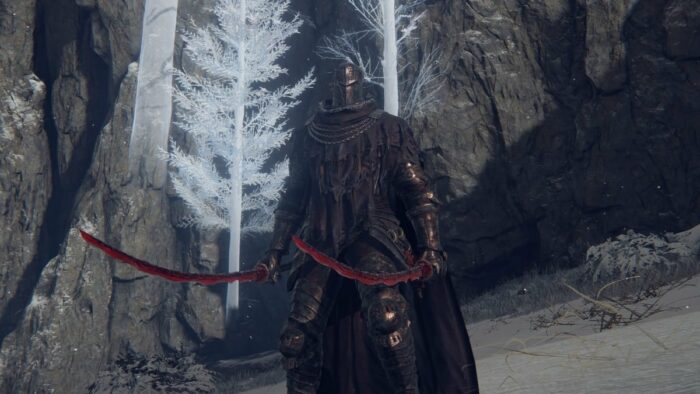
Dexterity and Damage Scaling
In Elden Ring, damage scaling is a fundamental mechanism that determines how much extra damage your weapon inflicts based on its corresponding stat – in this case, dexterity. The scaling values go from E (lowest) to S (highest). If a weapon has high dexterity scaling, it means that as you increase your dexterity, the damage you can inflict with that weapon also rises.
This system creates an incentive for players to invest in dexterity when wielding dexterity-scaled weapons. However, it’s important to balance this with other character needs and stats, creating a unique and effective build.
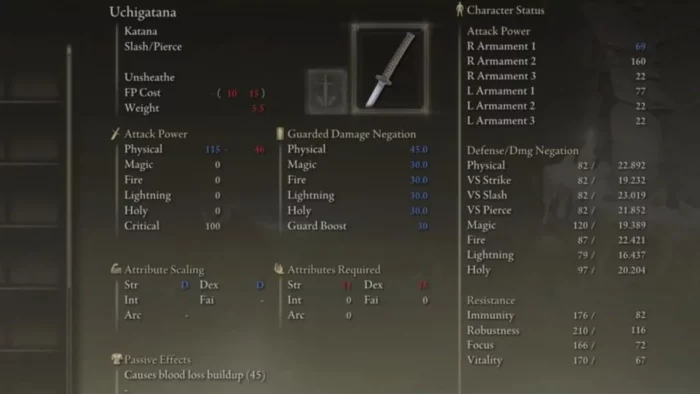
Dexterity-increasing Items
In your journey through Elden Ring, you’ll come across items that can temporarily boost your dexterity. These items can provide a significant advantage in combat, especially when using dexterity-scaled weapons.
However, be aware that these boosts are often temporary and should not replace a well-rounded stat distribution for your character. They are more of a bonus or a quick fix for certain challenging situations, rather than a long-term solution.
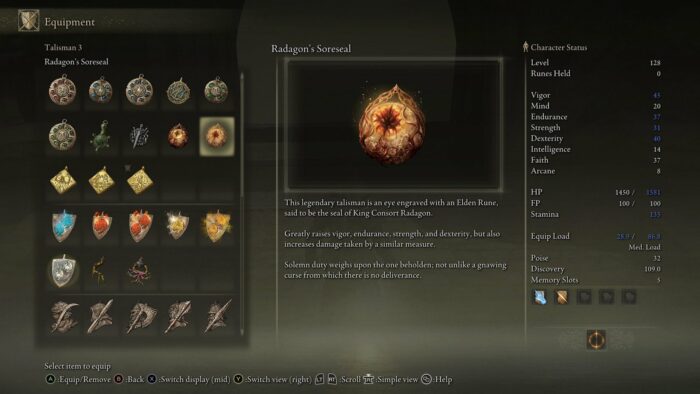
Dexterity and Elden Ring Builds
In Elden Ring, your character build – the distribution of your stat points – plays a significant role in defining your gameplay style. If you prefer fast, agile combat with precise strikes, a dexterity-focused build might be your cup of tea.
Dexterity builds often focus on wielding fast weapons effectively and maximizing damage output from these weapons. However, such builds might also require a good understanding of the game’s mechanics, as you’ll need to dodge and attack swiftly to make the most of your high dexterity.
While planning your build, it’s also crucial to understand the concept of ‘soft cap’ for dexterity. The soft cap is the point beyond which investing more points into dexterity provides diminishing returns. In Elden Ring, the soft cap for dexterity is often debated, but many players agree it’s around 40-50 points. Therefore, while it might be tempting to pour all your points into dexterity, it’s often more beneficial to diversify your stats once you reach this cap.
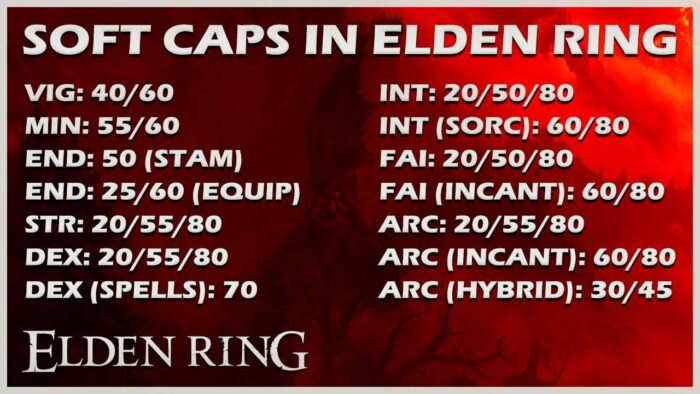
Best Dexterity-Based Weapons in Elden Ring
Elden Ring offers a wide variety of weapons, each with unique characteristics and requirements. Here are some of the best dexterity-based weapons that you should consider for your arsenal:
- Moonveil Katana: This is a swift weapon that scales excellently with dexterity. It’s a favorite among many dexterity-build players.
- Nagakiba: Another high-dexterity katana, Nagakiba offers excellent speed and damage output.
- Hand of Malenia: This is a unique weapon that not only scales with dexterity but also provides a reduction in fall damage, making it a versatile choice.
- Uchigatana: This is a classic dexterity weapon, offering fast and precise attacks.
- Scythe: The Scythe is another weapon that scales well with dexterity. It provides a good range, making it a suitable choice for keeping enemies at a distance.
Remember, the effectiveness of these weapons can be significantly improved by upgrading them using various resources found throughout the game world.
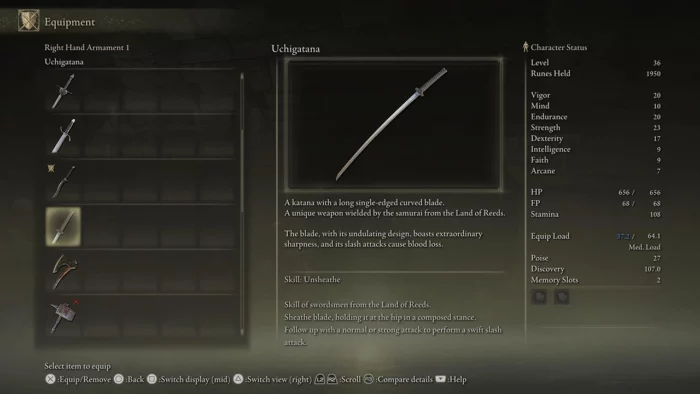
Conclusion
Mastering dexterity in Elden Ring can significantly enhance your gameplay, especially if you lean towards swift, precision-based combat. Remember, while dexterity is an essential stat, a balanced character build and understanding of other game mechanics are also crucial to your success in Elden Ring. Now that you know what dexterity in Elden Ring is, you are better equipped to traverse the Lands Between and face whatever challenges lie ahead.
Whether you’re a seasoned Souls-like veteran or a newcomer to the genre, understanding dexterity and its implications can help you create more effective builds and choose the right weapons for your playstyle. Just remember – while dexterity can give you an edge in combat, it’s the mastery of timing, positioning, and strategy that truly defines success in Elden Ring.
Frequently Asked Questions
What does dexterity do in Elden Ring?
Dexterity in Elden Ring is a core stat that affects the efficiency and damage output of certain weapons. High dexterity improves performance with fast, precision-based weapons.
How does dexterity affect weapon damage?
Dexterity influences the damage scaling of certain weapons. Higher dexterity can result in increased damage output for weapons that scale with this stat.
What is the ideal dexterity level in Elden Ring?
The ‘ideal’ dexterity level depends on your character build and weapon choice. However, many players consider the soft cap of 40-50 points to be a good benchmark.
How can I increase my dexterity in Elden Ring?
You can increase your dexterity in Elden Ring by investing stat points into it when you level up. Certain items can also temporarily boost your dexterity.
What is the effect of dexterity on spell casting time in Elden Ring?
In Elden Ring, higher dexterity can potentially reduce spell casting time, allowing you to cast spells faster. This can be particularly beneficial for hybrid builds that combine melee combat with magic.
What’s the importance of meeting the minimum dexterity requirement for weapons?
Meeting the minimum dexterity requirement for a weapon ensures you can wield it effectively. Failing to meet this requirement can result in reduced efficiency and damage when using that weapon.
Can I increase dexterity beyond the soft cap for better performance?
While you can technically increase dexterity beyond the soft cap, the benefits you receive per point invested decrease significantly after reaching this cap. Therefore, it’s often more advantageous to diversify your stats beyond this point.

